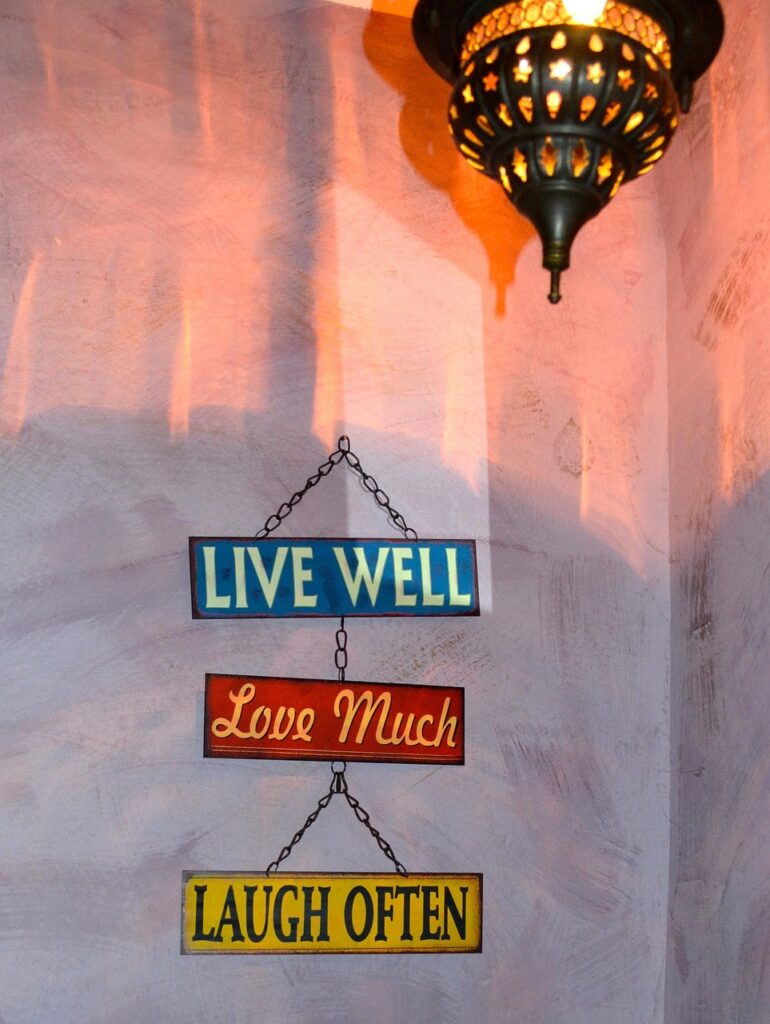You may not call it “revenge”, but if you’ve ever been body shamed, overlooked, underestimated, or denied access to softness, stability, or safety, chances are you’ve thought about living differently. Not just better. But deliberately opposite.
We don’t always talk about it openly, but many lifestyle shifts are rooted in a response to the past. A quiet declaration: “I refuse to live the life I was handed. I’m going to create the one I deserved.” That’s revenge living.
It’s not about being petty or dramatic. It’s about reclaiming what was denied, not just the material things, but emotional safety, dignity, and joy.
In this post, we’ll unpack what revenge living really means, where it comes from, why it can be empowering and how to make sure it’s healthy and not just a performance.
What Is Revenge Living?
Forget the name for a second. This isn’t about vengeance. Not in the way most people think.
Revenge living isn’t about trying to prove anyone wrong. It’s not about rubbing success in the faces of people who doubted you. It’s not about aesthetics for the sake of clout.
Revenge living is the intentional act of building a lifestyle that directly contrasts what you were once denied, whether by circumstance, by people, or by systemic limitation.
Revenge living is the slow, intentional act of reclaiming your own life. It’s about building something beautiful, not to show off, but to heal.
It’s about finally giving yourself the things you were told you couldn’t have.
A peaceful home. Financial stability. Good food, eaten slowly. Boundaries that no one crosses. Rest without guilt. Joy without explanation. That’s revenge living. Not because it screams, but because it refuses to settle for less anymore.
Why People Choose Revenge Living
Most people don’t wake up and declare, “I want to design my life out of spite.” But over time, after repeated experiences of being denied love, respect, access, or opportunity, it becomes personal.
Some common triggers include:
- Body shaming and appearance-based rejection
After years of being judged, mocked, or told to shrink, people often reclaim space and confidence through fashion, fitness, or lifestyle choices that reflect self-acceptance, not apology. - Financial or material lack
Growing up with instability can make someone crave comfort, order, and even luxury as a form of healing. A simple, well-decorated apartment might feel like emotional wealth. - Emotional neglect or invisibility
People who were ignored, dismissed, or never prioritised often create lifestyles that centre their own needs, rest, therapy, peace, beauty and finally put themselves first. - Constant criticism or being underestimated
Some people are driven to create lives that reflect independence, success, and freedom because they were always told what they “couldn’t” do.
In each case, the common thread is this: what was denied becomes what is pursued.
When Revenge Living Is Healthy
Revenge living, when grounded in clarity and self-respect, can be one of the most transformative decisions you make. It’s not about becoming someone flashy or unrecognisable; it’s about becoming fully, unapologetically yourself, often for the first time.
This kind of lifestyle shift is healthy when it stems from reflection, not reactivity, and when it’s built to sustain you, not impress anyone else.
Here’s what healthy revenge living actually looks like in practice:
1. It’s rooted in healing, not bitterness
You’re not obsessed with who hurt you. You’re focused on becoming who you want to be. Your choices are forward-looking, not reactive. Your energy isn’t consumed by resentment or the need for validation. Instead, it’s invested in who you’re becoming, someone grounded, self-aware, and free. Healing becomes the focus, not vindication.
You’re not running from your past. You’re just no longer letting it dictate your future.
2. It’s private and personal
Not every milestone is shared. Not every win needs to be seen. You build quietly, with depth. And your lifestyle makes you feel good, even if no one else is watching. You make soft, nourishing choices without turning them into content. You know that real peace doesn’t always need an audience. It becomes less about proving you’ve changed and more about enjoying that you have.
3. It’s sustainable
You’re not burning out trying to live a life that impresses others. Your new rhythm fits you emotionally, financially, and mentally. You choose habits, routines, and goals that align with your energy and capacity. You understand that soft living isn’t always slow, but it’s never frantic. Your boundaries protect you. Your finances reflect intentionality, not competition. Your calendar finally leaves room for you.
In short, the life you’ve built doesn’t drain you. It holds you.
4. It aligns with your values
Instead of copying someone else’s version of “success”, you create a lifestyle that reflects your own priorities, which might be stillness, creativity, ambition, freedom, or comfort. That’s what liberation looks like: when your lifestyle finally matches your truth.
In these cases, revenge living becomes less about performance and more about personal liberation.

When Revenge Living Becomes a Performance
There’s a fine line between healing and hustling for validation. And sometimes, revenge living crosses it.
It can become:
- A curated lifestyle that hides emotional exhaustion
You look put together, but you’re constantly performing peace instead of actually feeling it. - Financially unsustainable
Trying to live “better” than your past doesn’t mean you should stretch yourself thin to prove you’re thriving. - Obsessed with visibility
When your happiness depends on being seen, praised, or envied, it may be time to pause. Growth shouldn’t need an audience to be real. - Trapped in comparison
You start to base your choices on how others perceive you or how much “better” you are than who you used to be, rather than who you’re becoming.
This is where revenge living becomes hollow. You’re still reacting to the past, just with nicer clothes and prettier photos.
The lifestyle looks good. But inside, you still feel like you’re chasing something.
Rebuilding from a Place of Wholeness
Here’s what I’ve learnt. The life you create for yourself should love you back.
It should hold you gently, not squeeze you into anxiety. It should reflect who you are, not who you’re trying to impress. It should expand you, not drain you.
So how do you get there?
1. Let go of the need to prove anything
Ask yourself, “If no one ever saw this version of my life, would I still want it?” If the answer is yes, you’re on the right path.
2. Redefine what “better” means
Better doesn’t always mean more expensive, more impressive, or more aesthetic. It might mean simpler, softer, slower, or more honest.
3. Prioritize peace, not applause
If your lifestyle brings you calm, joy, and clarity, then it’s working. Even if no one else notices.
4. Make space for gratitude
You don’t have to be grateful for the pain, but you can be grateful that you turned it into something meaningful. Acknowledging how far you’ve come is part of the healing.
5. Build with care, not urgency
You don’t have to rush into your new life just to prove you’ve moved on. Take your time. Choose intentionally. You’re not late.
This Life Is Yours Now
I don’t know who told you that you couldn’t have softness. I don’t know who made you feel like survival was all you’d ever get.
But they were wrong.
You are allowed to live richly. To feel deeply. To thrive. Not just exist.
You are allowed to build a life that looks nothing like the one you came from.
You’re allowed to choose joy even when no one understands it.
You don’t owe anyone a version of yourself that shrinks.
You don’t need to perform to be worthy.
You don’t need to be triggered to feel driven.
You are allowed to rest, to bloom, and to take up space just because you’re here.
This isn’t about revenge anymore.
This is about returning to yourself because, at the end of the day, revenge is loud. But healing? Healing is quiet. It’s choosing the slow, beautiful life even when no one is watching.
It’s building a world that feels like freedom. It’s waking up in a room that smells like lavender, in a body you’re learning to love, and whispering to yourself, “We made it.” And maybe that’s the best kind of revenge there is.
Over to You
Have you ever felt like you were living to prove something? Have you made decisions you now realise were fuelled by pain instead of peace?
What does your version of revenge living look like today? How are you learning to soften into a life that truly fits you?
I’d love to hear your story. Share it with me in the comments. If this piece resonated, pass it along to someone who might be in their mattress-on-the-floor season. They may not say it out loud, but they need the reminder that a softer life is possible and it’s not too late to start building it.
Always rooting for you.
Living well is the best revenge – George Herbert
Stay frosty.




